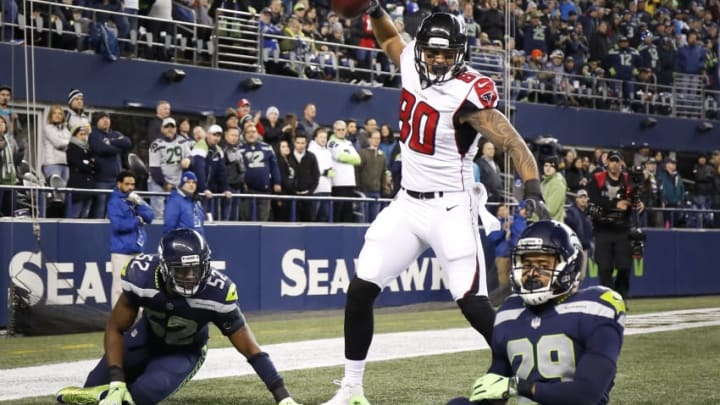The Detroit Lions helped to shore up their tight end position on Wednesday by finding themselves another veteran in free agency.
The Detroit Lions lost two critical pieces of their offense this offseason. Tight ends Eric Ebron and Darren Fells will both play for different teams in 2018. Now, the Lions must go about the job of replacing them.
Ebron, the 10th overall pick in the 2014 NFL Draft by the Lions, was released two weeks ago after failed attempts to trade him. His $8.25 million salary simply made it difficult to get a deal done, so Detroit opted to cut ties. But they lost their starting tight end in the process.
A likely Ebron replacement, Fells was a free agent this offseason. The 31-year old veteran signed a three-year, $12 million to join the Cleveland Browns on the first day of free agency. Suddenly, the Lions were left with only 2017 fourth round pick Michael Roberts plus relative unknowns Hakeem Valles and Brandon Barnes on the depth chart at tight end.
Last week, the Detroit brass inked former Seattle Seahawks tight end Luke Willson to a one-year, $2.5 million contract. Having played five seasons in Seattle, Willson is considered more of a blocking tight end with some skills as a receiver. His presence figured to fill the void left by Fells in a similar role.
That presumably meant the Lions were on the market for a primary pass catching tight end to replace Ebron on the starting lineup. And they still might be. Yet, Detroit did sign another free agent tight end on Wednesday, securing the services of former Atlanta Falcons veteran Levine Toilolo on a one-year deal.
Next: Should the Detroit Lions trade for Odell Beckham Jr.?
A fourth round selection out of Stanford in 2013, the monstrous 6-foot-8, 265 pound tight end has played his entire five-year career in Atlanta. Also seen more as a blocking tight end, Toilolo has recorded a total of 74 receptions for 723 yards and seven touchdowns as a pro. With his signings, it appears the Detroit Lions will expect more run blocking from their group of tight ends rather than catching a high volume of passes.
